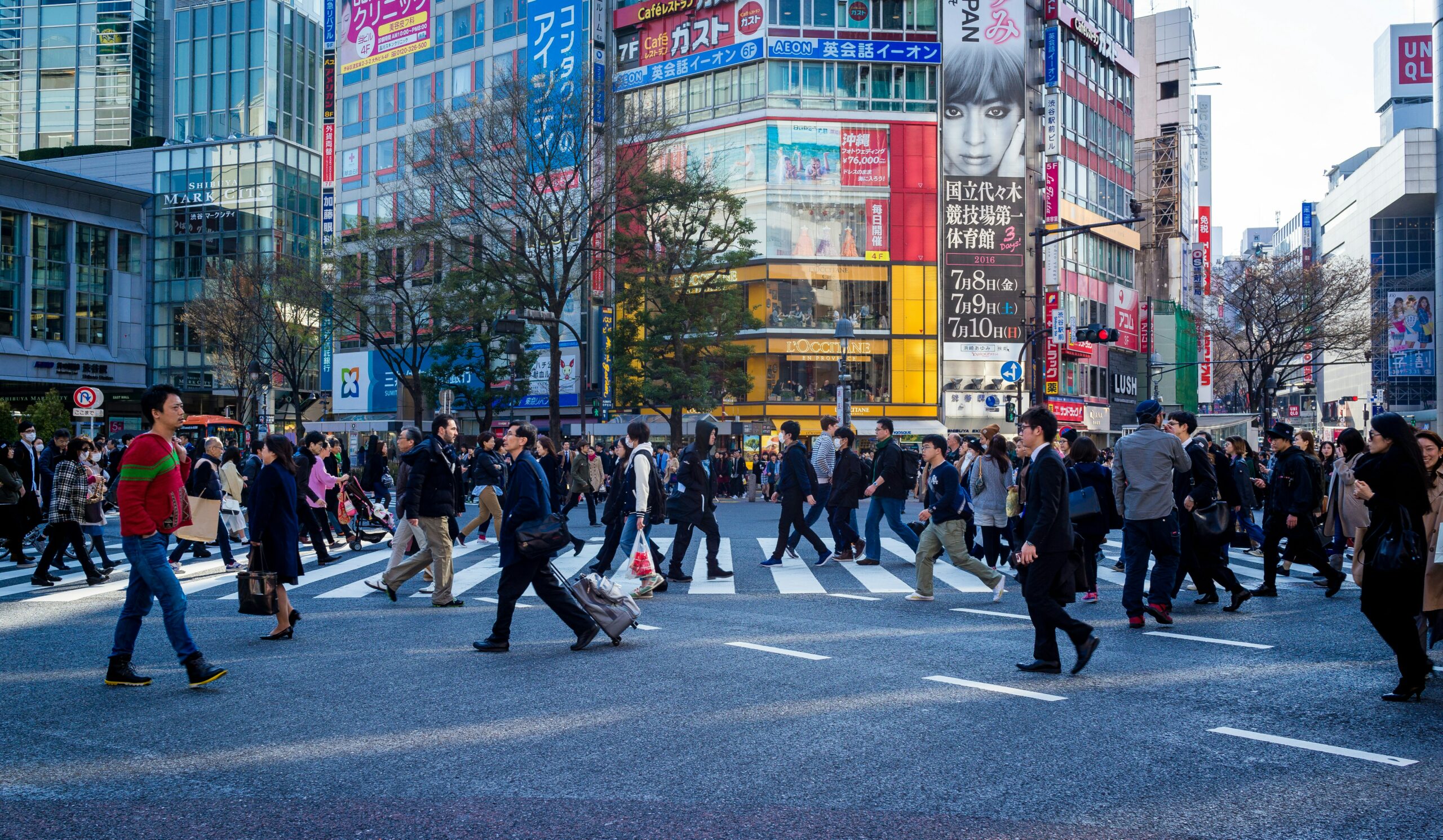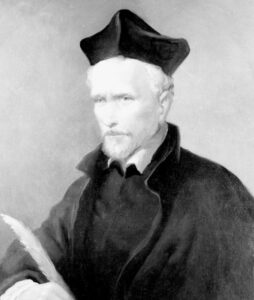
Thinking beyond liberal modernity
|
Getting your Trinity Audio player ready...
|
Modernity is an intellectual movement whose philosophical principles were forged and manifested in the 14th and 15th centuries, although some authors have also raised the thesis of its previous theological origin, with the establishment of Christianity in the West. Although it is true that modernity develops in the historical context of the so-called Modern Age, as noted, it alludes to a movement of ideas that has its sources in different historical moments and philosophical and theological thoughts. However, the philosophy of modernity would crystallize around the 18th century with the Enlightenment and then, starting with the French Revolution, it would be decisively and progressively manifested to the world through liberalism, the ideology that helped the bourgeoisie to become sovereign. At that moment and in light of the political, economic, social and cultural changes that took place with it, it will materialize as a political and economic project, around the principles of freedom and equality.
Since the Enlightenment, that is, three centuries ago, the movement of modernity has been basically characterized by seven converging processes:
1) rationalization, through the dominance of practical reason;
2) secularization, through the demystification of religious stories and all metaphysical beliefs, replaced by the myth of human progress without limits or borders;
3) scientism and technocracy, due to the imposition of a process of rationalization and control of life in general, individual, social and natural, based on the predominance of calculating reason and technical efficiency;
4) individualism, due to the destruction of natural communities of belonging and identity, from the family to guilds and the national community;
5) social massification, due to the adoption of standardized and homogeneous behaviors and ways of life;
6) economism through the market, as an ideal model of social regulation based on commercial exchange and stock market speculation of individual interests, also allowing the generation of global networks not subject to state limits; and,
7) globalization or worldism, as the imposition of a hegemonic economic and political model of society, presented as the only possible one.
According to the above, liberalism as an ideological manifestation and praxis of modernity, has promoted worldwide, in accordance with its substantial postulate of individual freedom: the liberation and autonomy of people from every natural community, from the family to the nation; the market society, comprised of consumers and producers, functional to the regulation of individual commercial exchanges, regardless of the common good, understanding that in this way individual freedom, property and interest is achieved and guaranteed, hence its permissive postulate of letting go and letting go; human rights as universal morality, neutralizer of the political and a form of subjection of the State to the desires and interests of a supposedly sovereign individual; and, finally, a political order that was useful in transforming traditional power structures in Europe and the rest of the world, by introducing concepts such as representative democracy and separation of powers, and then continuing with the current attempt to develop global governance over the national States, as a power destined to impose the dictatorship of the single thought and the politically correct. Liberalism is thus the first and main ideological expression of modern philosophy and has had the greatest hegemonic potential of political, economic and cultural thought in the world.
At first, liberal thought, founded on the Enlightenment, promoted the autonomy of reason, as Daniel Innerarity explains “The liberation of reason responds to the Enlightenment demand to use oneself independently of one's own thought. Reason cannot submit to any law that it has not given itself, human dignity is something that is achieved in self-affirmation, good action is equivalent to the autonomy of the will, and freedom consists of a self-constituting act based on of a subjective lack of laws” (Modernity and Postmodernity, in Philosophical Yearbook, Vol. 20, No. 1, 1987, p 112). Then, in a second stage, the economic will gain autonomy from morality, politics and society, in which it was previously inserted. In a third phase, liberalism made commodity value the sovereign instance of any life in common.
The advent of the kingdom of quantity and pure materialism and consumerism define that journey that has taken us from market economies to market societies, that is, the extension to all areas of the laws of commercial exchange, driven by a fictitious "invisible hand" that is none other than that of the power of big world capital. Liberalism implies the denial of the specificity of the political, since this always entails the possibility of arbitrariness in the decision and plurality in the purposes. From this point of view, speaking of "liberal politics" is a contradiction in terms. Liberalism, which aspires to build the social fabric based on a theory of rational choice that subordinates citizenship to individual utility, is reduced to an ideal of managing global society, placing itself under the limited horizon of bureaucracy and technocracy. At the same time, the liberal State believes it can refrain from proposing a model of a good life and aspires to neutralize the conflicts inherent to social diversity.
The public space dissolves into the private space, while representative liberal democracy is reduced to a market where an increasingly restricted supply of political parties and an increasingly less motivated demand that increasingly responds with abstention meet. Liberalism, on the other hand, has generated individualism, based on a false anthropology, both from a descriptive and normative point of view. In effect, this ideology denies the social character of the human being, conceiving him as a subject prior to society and the only source of values and rights, dedicated to permanently maximizing his selfish interest. Daniel Innerarity explains this, noting that such individualism “supposes the abandonment of the old principle of natural sociability. Man should not be understood from now on as a "political animal", but as a sovereign individual. The human situation and condition—what we have called here its social context—no longer enter into the definition of man, but rather as an external and circumstantial addition.
The individual is indifferent to the social place” (Ibidem, p. 116). Thus, liberalism recognizes individuals' inalienable and imprescriptible rights, prior to any social pact, transforming them into a sovereign subject whose desires can even be transformed into subjective rights. Society and intermediate social bodies in liberal ideology only constitute the practical and conventional result of the sum of individuals, but do not have a natural and pre-existing entity to them. It has been correctly said that liberalism is “an expression of a society that is no longer a community” (Arthur Moeller van den Bruck). It is also this asocial and individualist perspective of liberalism that leads it to adopt an anti-state position and minimization of the State. This double economistic and individualist drive of liberalism is accompanied by a vision of social life reduced to generalized competition, a new version of Hobbes's "war of all against all", in order to select the "best", that is, That is, social Darwinism.
Liberalism ignores that perfect competition is a myth, since the relations of force pre-exist the appearance of it. Evolution selects those fittest to survive, but man is not content with this, but rather orders his life based on a hierarchy of values, but it is precisely here where liberalism tends to remain neutral, allowing the privileged to and not the best prevail. The iniquitous character of liberal domination engendered in the 19th century a reaction embodied in the socialist movement. But he deviated from his path under the influence of Marxist theories. And despite everything that opposes them, liberalism and Marxism fundamentally belong to the same universe, inherited from the thought of the Enlightenment, the modern project and capitalism: the same underlying individualism, the same historical materialism, the same egalitarian universalism, the same rationalism, the same primacy of the economic, the same insistence on the emancipatory value of work, the same faith in progress, the same aspiration for the end of history and the disappearance of the national State.
Notwithstanding this, liberalism has more effectively achieved certain objectives that it shared with Marxism: eradication of collective identities and traditional cultures, disenchantment of the world, universalization of the productive system, primacy of the economic. Modernity and its various ideologies and worldviews have separated man and people from the natural and historical sense, with the purpose of imposing the times of a post histoire, which is nothing more than the absolute domination of the former, the neutralization of the political, of all conflict, of all legitimate divergence or difference, the Kantian illusion of a state of perpetual peace, whether where everyone has become equal, bourgeois, proletarian or cosmopolitan and the passage of time without events. Modernity rejects the historical sense and on the contrary promotes its end, because it rejects all past, opposes the ancient world, wants absolute and revolutionary novelty, radically eliminating every vestige of tradition, political or cultural heritage.
Modernity by definition is the transitory or fleeting (Charles Baudelaire), which is why it constitutes permanent change and revolution, superficial existence as imposed fashion. This is the cause of the crisis of these times, of the pretension of the end of history; the cause of the discomfort and disenchantment of the modern subject, who survives in the emptiness and existential depression generated by the world system. As a consequence of social atomization, the modern era has ended up creating the civilization of the masses, that of the mass man, individuals without identity, disconnected or uprooted from their natural communities, in pursuit only of their material survival, be it those who live off the need or the one who lives in overabundance, the paradox that shows this world of the 21st century, that of scientific-technical superdevelopment and the megamachine of production and consumption, on the one hand, and, of the poverty that cohabits it, on the other side.
This materialistic civilization, as has already been said, has devastated culture and history, annihilated everything great that the human spirit and mind have been able to do throughout the long historical march of peoples. This transformation of humans, from homo sapiens to homo economicus, simple basic material lives, also explains both the advent of market societies and the current massive wave of migration in different parts of the world, transfer of cheap and unskilled workers from a place to another, separating them from their families and their homelands and acculturating them. Hervé Juvin has expressed that “the advent of the individual makes citizenship obsolete”, precisely because of those social disconnections. The only thing that matters is the functioning of the world as a great global market, which does not need citizens of the world, but rather consumers.
Behind this process there is an invisible hand that moves human masses for the world economy, but that hand is not that of Adam Smith's free market, but rather that of the global powers of big capital and that of the governance of international organizations that it carries. out the progressive liberal utopia. However, current civilization has in view something more than that transformation of humans into consumers and workers, an assault on culture and human nature and condition itself is already underway, destined to make them disappear through the work of “transhumanism.” , that is, nothing less than the complete modification of human anthropology and nature and the dehumanization of the world by technology. Liberal ideology constitutes a true utopia that is difficult to achieve (its Gordian knot), which is demonstrated in its current decline and crisis. As important intellectuals have expressed, the apparent historical triumph of liberalism has meant the exhaustion of the means by which it was intended for humanity to achieve the utopia of indefinite progress (natural resources) and the infinity of options and the total autonomy of the individual starting in childhood (progressive autonomy it is called today).
On the contrary, Moeller van den Bruck stated that “liberalism undermined cultures, destroyed religions and annihilated homelands, it is the self-dissolution of humanity.” The radicalization of its own ideological dynamics and logic has led it to a dead end. Liberalism has turned out to be unviable and unsustainable and, therefore, as Patrick Deneen has recently argued (Why has liberalism failed? Editorial Rialp, 2019), it can only be said that it has seen triumph and failure at the same time. . Liberalism failed and caused the death of modernity by its own intrinsic dynamics and logic and with this it has dragged the world into a crisis and chaos from which it will not be able to escape through the same path. NEOLIBERAL POSMODERNITY AS A PRODUCT OF THE DIALECTIC OF MODERNITY It has been stated that postmodernism is a current of thought that emerged in the mid-20th century as a critique of modernity, insofar as the idea of progress and emancipation, promoted and developed by The project and the means of liberalism are no longer sufficient to achieve individual well-being and fulfillment, as they have been exhausted.
In this sense, it has been expressed that “Modernity was initially thought through two essential values, namely, freedom and equality, and under an unprecedented figure, the autonomous individual, which broke with the world of tradition. However, in the classical era, the emergence of individualism corresponds with an increase in the power of the State, which makes this autonomy of subjects more theoretical than real. Postmodernity represents the specific historical moment in which all the institutional obstacles that hinder individual emancipation crack and disappear, giving rise to the manifestation of personal desires, individual fulfillment, and self-esteem. The great socializing structures lose their authority, the great ideologies stop serving as vehicles, historical projects no longer mobilize, the social field is no longer more than the extension of the private sphere; The era of emptiness has arrived, but without tragedy or apocalypse” (Sébastien Charles, Introduction to the thought of Gilles Lipovetsky, in Hypermodern Times, Editorial Anagrama, 2004, pp 23-24).
Found in the background and origin of this movement and socio-cultural process, both positions of rejection of the project of modernity and liberal ideology, as well as attempts to reinvigorate them, to radicalizations along these same lines, for now, formulations philosophical such as the attempt at salvation made by the Frankfurt philosopher, Jürgen Habermas, by describing modernity as unfinished or the development of neoliberalism in economic matters first and then its political and social manifestations to the present; from the emergence of the consumer society and its member, homo economicus and consumans, to consumer culture, based on desire, drives, emotions and, ultimately, individualistic hedonism.
In this sense, we can already understand what will be related to this part, the fact that there can be no postmodernity without neoliberalism and vice versa. Among the criticisms of modernity that are most frequently made for its inability to achieve general progress and human emancipation, are those that attribute its failure not only to the development of its project, but to all political and economic models. and social that emerged from it; Religion, morality, politics, the economic system and social dynamics are questioned, in an attempt to seek answers that allow finding new paths of progress. It is true that, from the moment of its inauguration and throughout the 19th and 20th centuries, criticism of modernity and liberalism had been growing and accumulating in consistency and strength, considering the most radical phenomena against it, such as revolutions. communist and fascist, but it will not be until the second half of the last century that the transition to so-called postmodernity occurs. Although there is no clear date for the beginning of postmodernism and it would be impossible to reach a consensus, some have considered the fall of the Berlin Wall in 1989 and the announcement of the end of history as the definitive victory of liberalism over communism as the climax or inauguration of postmodernism.
However, it is also possible to go back even more than two decades from that event to find ourselves in the 1960s, critical of the results of modernity and expressive of the discomfort towards it. The American sociologist Daniel Bell, known for his works The End of Ideologies or The Cultural Contradictions of Capitalism, had already warned about this at that time and also announced the advent of post-industrial society. But May '68 is, of course, a political and cultural milestone, although it is only a cultural revolt and not a revolution at the very moment of its development. Its consequences were progressively seen. What came after that revolt can be described in the following terms: “Consumer society needed the destructive energy of youth to democratize access to desire.
As such, "May 68" is nothing more than a mutation of late capitalism. With leftism in the role of variable adjustment or useful idiot, depending on how you look at it. Youth had been, as Milan Kundera said, the “unconscious collaborator” of capital. The liberalization of customs was a necessary precondition. Thanks to which we went from the capitalism of producers to a capitalism of consumers” (“May 68”, the infantile illness of capitalism, François Bousquet, in www.elmanifiesto.com) Such revolt was a manifestation of nonconformity with a liberal modernity that was too rationalized. and universalist pretensions, which produced this disenchantment of the world in Weberian language, with the “democratic enchantments that are familiar to us, since they have become abstract, empty of meaning,” points out the French sociologist Michel Maffesoli and adds “Freedom, citizenship, contract , individual, etc., are so many terms that tend to constitute an “idiolecty”, a language specific to a few and understandable to them and those who, at the time, “invented” modernity. "We must find other words to give birth to the postmodernity that lies, but for it to be possible, it is important to disturb our certainties and not only for the simple pleasure of provocation, but to agree with the fermentation of spirits" ( The transfiguration of the political.
The tribalization of the postmodern world, Editorial Herder, 2005, p. 38). On the other hand, it is vulgarly stated that neoliberalism constitutes a manifestation of a thought of exclusively economic scope, a new paradigm that would have developed in the 70s of the last century and would be based on the deregulation of the markets, on financial turbo-capitalism and the development of a global market. There is some truth in that and it is verified in the implementation of neoliberal economic models, for example in our country. However, neoliberalism is much more than all of this, because this globalization carries out a process of cultural homogenization by eliminating cultural and social differences and diversities in a more radical way than liberalism itself. This has been rightly pointed out by the philosopher Luis Oro, when he stated that “Neoliberalism is something more than an economic doctrine. It is a way of interpreting the world, of living one's life and of relating to others. It is something like the air we breathe and the soil that sustains us. All of us, whether we like it or not (a lot for some, a little or nothing for others, that varies), are neoliberals in some way. Neoliberalism is characterized by the predominance of utilitarian calculation, by the boldness of instrumental rationality and by its short-term time horizon, as it avoids transcendent purposes.
What are the elements of neoliberal “metaphysics”? The instantaneity, the concreteness, the volatility of value. Such “metaphysics” is evident in the vigor of the youthful expression “I want it, now, now!” The impetus of such pulsation is omnipresent, with more or less vehemence, in the daily life of neoliberal society” (Neoliberalism as a cultural horizon, in Historical Reason, Revista Hispanoamericana de Historia de las Ideas, Number 38, Year 2018, pages 21 -38. www.revistalarazonhistorica.com). Postmodernity, the rebellious daughter of liberal ideology, shaped by the civilization of spectacle and consumption, not only atomizes society by disconnecting individuals from their communities of life and uprooting them from all community belonging and identity, but also alienates them. , with the obvious purpose of subjecting them to the uniformity demanded by mercantilist and consumerist civilization, the so-called neoliberal globalization, transforming them into mere consumers, operators and producers and even into global workers, through mass migratory movements carrying labor from low cost from one country to another, as Luis Oro states, “in the neoliberal era, individuals are required who are productive; not reflective people, much less contemplative. Thus, the eccentric (that human type who swims, heroically, against the current and that John Stuart Mill so praised) has no place in the neoliberal world” (Ibidem, p. 36). Economically, neoliberalism has been driven by globalization and the generation of a global market, as a consequence of greater capitalist dynamics and the post-industrial revolution, which have replaced the industrial economy with one based on consumption.
Alain de Benoist has pointed out that “the factors that characterize globalization are: the expansion of the capitalist economic system; the new form of territorial and political organization of the world system as a permanent process (where the nation-state is displaced); the expansion process of multinational companies and their specific weight in world production; the development of communications and the speed with which technological innovation occurs” (Beyond the right and the left, Áltera editions, 2010). This drives the mass production of goods and services that in most cases are ephemeral or dispensable. However, we know that the unbridled generalization on a planetary scale of production and consumption driven by neoliberalism is rapidly leading to the depletion of available natural resources and a series of climatic and atmospheric disorders with dire consequences for the human species and the environment. atmosphere.
The disfigurement of nature, the exponential impoverishment of biodiversity, the alienation of man by machines and technology and the degradation of our diet are demonstrating that "more and more" is not synonymous with progress. At the present time, liberalism or its most extreme version, neoliberalism, is no longer presented just as another political or economic ideology, but only as a world system of production and circulation of men and goods - the globalization of capitalism. , presided over by moralism or the religion of human rights and a partitocratic political system, an oligarchy that has completely supplanted democracy itself. Under its economic, political and moral forms, neoliberalism represents the central ideological block of a postmodernity in crisis that is exhausted and that together with the decadent postmodern ideologies inspired by the utopia of indefinite progress, drag the world to total nihilism and its own destruction. social and ecological, for the scientific and technological development of transhumanism, which will be the end of the human and natural world. As Alain de Benoist points out, “The society of neoliberalism is increasingly a society of depression and fatigue, a society of isolated subjects, subjected to a dynamic of self-exploitation. A hell of the same” (Ibidem).
On the other hand, the revitalization of the myth of progress typical of modernity and of individual freedom of classical liberalism, as well as the religious acceptance of the commandment of human rights, to which they adhere from the right to the left (they are no longer differentiated ), demonstrates that neoliberalism has a greater hegemonic power than the original project of modernity and that, consequently, one should not be fooled by the leftist criticism of the former in its economic aspect, because it is as neoliberal as the right. In fact, the political philosopher Luis Oro strips the left naked by telling it that “egoism, extreme individualism, even solipsism, is something natural for it (the left). The artificial and the artificial is the collective. It is not in vain that it spontaneously affirms the individual in an absolute way. Such emphasis leads her to demonize classic collective entities, such as, for example, the nation, the family, gender and the State.
For this reason, everything that opposes its individualism and solipsism is described as repressive or simply branded as fascism” (op. cit., p. 37). The postmodern left has been even more globalist and liberal or neoliberal than the old Marxist left. Alain de Benoist, reflecting on May 68, said that the left of that time, who laid the foundations of progressive political postmodernism “far from exalting a revolutionary discipline, their supporters wanted above all to “ban prohibitions” and “enjoy without barriers.” . However, they soon realized that making a revolution and putting themselves “at the service of the people” was not the best way to satisfy their desires. On the contrary, they soon understood that they would be more securely satisfied in a permissive liberal society. And they ended up allying themselves naturally with liberal capitalism, which did not fail to bring, for a good number of them, material and financial advantages” (May 68: Psychodrama or mutation?, at www.elmanifiesto.com). Finally, it is worth keeping in mind that one of the characteristics of neoliberal postmodernity is the relevance that adolescent youth acquires, their political, economic, social and cultural prominence, the student, the main agitator of the revolts of the 60s and later. In the market society of neoliberalism, the consumer subject is mainly the adolescent, a stage that in contemporary times has extended to almost 30 years of age and youth exceeds a few more decades. In reality he is a hyperconsumer. Maffesoli says that “the emblematic postmodern figure is the figure of the adolescent or the eternal infant (…) The youth figure is something that will have the same importance in postmodernity, as the figure of the adult had in Modernity, that is, The figure of the eternal infant is going to be polluting. In this sense, whether we like it or not, in postmodernity we are pregnant with this youthful way of acting, with this overflowing energy, with this behavioral baroqueism” (The Transfiguration of the Political, p. 29). This not only explains the agitation and permanent political and social tension that many countries have been experiencing for some years, ours of course, but, what is more dramatic, is the irresponsibility of the actions taken by postmodern groups, urban tribes. (Michel Maffesoli), alien to the history of the national communities to which they belong, but who appear to have no identity with them. Youth individualism is highly irrational and, for this reason, its violence is difficult to control, so its ability to understand the limits of public policies and govern and tolerance and respect for the exercise of authority is very low. In the same way that the exercise of rights for them is absolute, in a pseudo culture of freedom and emancipation without imposition of correlative duties; For these postmodern young people, their rights constitute only duties for others. As their life horizon is long, they do not question or have sufficient awareness of the future or responsibility. As Luis Oro describes well, “for this reason, neoliberal “societies” hardly ask themselves what the meaning of life is. They don't even ask themselves what the ultimate meaning of their activism is, their frenetic doing for the sake of vain doing. They are “societies” that float quite well in a certain practical nihilism and – perhaps precisely because of this – they no longer reflect nor want to reflect. In them it is more pleasant and reassuring to consume than to think” (Ibidem, p 37). And those who think are invaded by idealism and equally irresponsible adolescent emotivism. In the end, modernity and the Enlightenment failed with that purpose that Kant stated “the emergence of man from his self-blaming minority. Minority means the inability to use one's own understanding without the guidance of another."
EMILE OLIVIER







